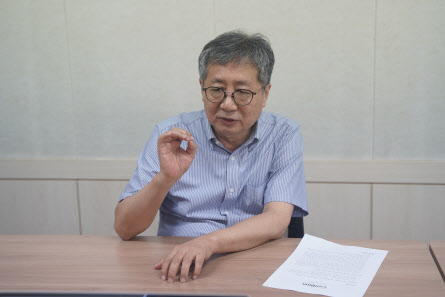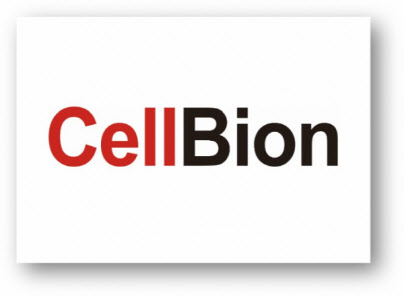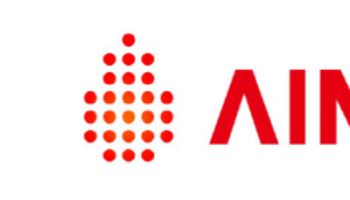Unauthorized reproduction or distribution is illegal and subject to criminal penalties.
Pharm Edaily enforces a zero-tolerance policy and will take strict action.
[Yu Jin-hee, Edaily Reporter] SEOUL, South Korea-Cellbion CEO Kwon Kim said the company achieved a notable milestone in its Phase 2 trial of the prostate cancer treatment candidate Lu-177-DGUL, reporting an overall response rate (ORR) exceeding 35% in terminal cancer patients.
“An ORR above 35% in late-stage cancer patients is a remarkable result,” Kim said in an interview with Edaily on Sept. 4. “We plan to share this data with our global pharmaceutical partners, including Merck, with whom we are collaborating on combination therapies, and explore ways to deepen our partnership.”
 | | Kwon Kim, CEO of Sellbion. (Photo provided by Sellbion) |
|
Outperforming Pluvicto, the dominant prostate radioligand therapy Earlier in the day, Cellbion released topline results from the Phase 2 study of Lu-177-DGUL, the company’s lead radiopharmaceutical candidate. Out of 91 patients enrolled, 78 were evaluable for tumor response. According to the prespecified primary endpoint, the ORR was 35.9% (28 patients), including a complete response (CR) rate of 8.97% and a partial response (PR) rate of 26.92%.
The trial, launched in February 2021, enrolled patients with metastatic castration-resistant prostate cancer (mCRPC) who had failed standard therapies. Industry observers noted that the average ORR in mCRPC typically does not exceed 20% with existing standard treatments such as docetaxel, cabazitaxel, abiraterone, or enzalutamide.
Kim highlighted that the results surpassed those of Novartis’ Pluvicto, currently dominating the global prostate radioligand therapy market. In a combination trial with standard of care, Pluvicto achieved an ORR of 29.8%, with a CR rate of 6.8% and a PR rate of 23.0%. “Our trial was conducted as a single-arm study, using a stricter criterion that required patients to be confirmed CR or PR at least twice, yet the outcomes were better,” he said.
Despite the promising data, the market reaction was muted. Shares of Cellbion dropped more than 13% on the NextTrade platform to 23,250 won, down from recent highs above 28,000 won. The decline reflected disappointment compared with interim results released earlier this year, which had shown a higher ORR of 47.5%.
Kim explained that the interim analysis excluded patients who discontinued after one dose, those who died from unrelated causes such as COVID-19, or those who refused life-sustaining treatment. “The final independent review committee applied stricter criteria, which included these patients, resulting in a lower ORR,” he said. He added that the company expects the final clinical study report (CSR) in the fourth quarter to address such discrepancies.
 | | (Photo provided by Sellbion) |
|
Preparing for conditional approval Cellbion has already laid the groundwork for conditional approval. Lu-177-DGUL was designated an orphan drug in 2021 and granted “Global Innovative Product Fast Track (GIFT)” status in 2023, both designed to expedite approval for therapies addressing serious diseases with high unmet need.
The company expects domestic sales of around 30 billion won ($220 million) annually if conditional approval is granted in 2026. The out-of-pocket cost is projected at about 27 million won per treatment, slightly lower than Pluvicto.
Safety data also favored Lu-177-DGUL: rates of grade ≥3 leukopenia (3.3%) and thrombocytopenia (2.2%) were markedly lower than Pluvicto (17.5% and 17.2%, respectively). Incidence of dry mouth, a common side effect of PSMA-targeting radiopharmaceuticals, was 13.2% versus 38.8% in the Pluvicto combination study.
Later this year, Cellbion plans to initiate a combination trial of Lu-177-DGUL with Merck’s immunotherapy Keytruda. Indications will also be broadened beyond prostate cancer to other solid tumors such as ovarian cancer.
Kim cited Yuhan Corporation’s lung cancer drug Lazertinib as a successful model for global drug development. “We want to replicate that success not only in Korea but worldwide, bringing hope to patients with refractory prostate cancer,” he said.




![Bio Stocks Unfazed by ‘Black Monday’ Rout...Neurophet and BL Pharmtech Surge [K-Bio Pulse]](https://image.edaily.co.kr/images/vision/files/NP/S/2026/02/PS26020300276b.jpg)


![김경민 용인세브란스 교수 "GLP-1 비만약, 복합제보다 투약 주기 관건"[전문가 인사이트]](https://image.edaily.co.kr/images/vision/files/NP/S/2026/02/PS26020300293b.jpg)
![ABL바이오, 사노피 변수에 20만원선 붕괴…HLB·루닛도 악재 부각[바이오맥짚기]](https://image.edaily.co.kr/images/vision/files/NP/S/2026/02/PS26020200183b.jpg)


!['텐배거 신화'에서 '마지막 증자' 시험대 오른 서범석 루닛 대표[화제의 바이오人]](https://image.edaily.co.kr/images/vision/files/NP/S/2026/02/PS26020100441b.jpg)